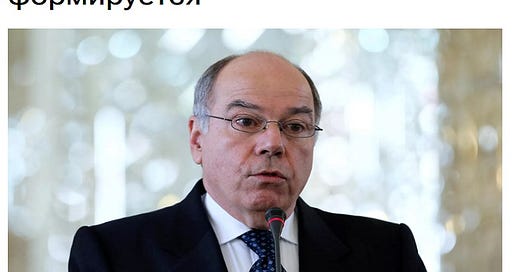It all went as expected and could have been shortened to a single page of bullet points about Brazil’s official foreign policy positions.
Russian international media flagship RIA published an interview with Brazilian Foreign Minister Mauro Vieira on Monday. It was largely a snoozefest since he didn’t say anything new or interesting, instead preferring to parrot platitudes about President Lula da Silva’s policies. Nevertheless, reading between the lines enables one to pick up a few important nuances. The present piece will therefore summarize what he said prior to interpreting it for the reader’s convenience.
Vieira claimed that Brazil has emerged from its “great international isolation” under the previous administration to now become a leading force for fighting climate change. It plans to finalize the details of the long-negotiated Mercosur-EU free trade deal before considering a similar such agreement with China. As for ties with the Eurasian Economic Union, Vieira confirmed that institutional dialogue between them exists but was vague about its future form and noncommittal about a free trade deal.
On the regional front, the Brazilian Foreign Minister hopes to unblock Bolivia’s accession to Mercosur in the coming future. He also said that his country is optimistic that the political crises in neighboring Peru and nearby Ecuador will be solved in line with their respective democratic frameworks. On the continental level, Vieira envisages Brazil’s return to UNASUR restoring that group’s prior function as a platform for coordinating multidimensional cooperation across South America.
As for BRICS, he confirmed prior reports that next month’s summit will involve discussions over the criteria and modalities for admitting new members but declined to say exactly which countries might be invited to join. Moving along to relations with Russia, Vieira said that they’re solid and expressed optimism that their trade will diversify from its dependence on agricultural products and fertilizer. Brazil is interested in introducing Russia’s Mir payment system, he said, but described the process as difficult.
Remaining upbeat about bilateral ties, the Foreign Minister then positively assessed the two phone calls between their leaders, President Putin’s meeting earlier in the spring with Lula’s chief foreign policy advisor Celso Amorim, and his own three meetings with his Russian counterpart. He also reaffirmed that Brazil remains opposed to unilateral sanctions and arming Ukraine while repeating Lula’s plea for peace, which he said his country could help broker, though without sharing details about what it has in mind.
Near the end of the interview, Vieira was asked about Brazil’s ties with China and the US, to which he answered as expected by emphasizing the importance of relations with each. His brief reply regarding the first mostly focused on their economic prospects while the similarly short one that he shared about the second concerned what he characterized as their “rapprochement”. Altogether, he basically ran through a list of talking points and didn’t really say anything new or interesting.
Even so, reading between the lines reveals a few important nuances that’ll now be touched upon in the order that they were presented above. For starters, his claim that the prior administration was responsible for Brazil’s “great international isolation” is only accurate in the context of its ties with the West, which is ruled by liberal-globalists. Accordingly, the subtext is that Lula’s ideology is closely aligned with theirs, thus explaining why relations improved after its conservative-nationalist leader left office.
This insight leads to the next point about why Brazil is focusing on finalizing Mercosur’s free trade deal with the EU before considering a similar such agreement with China. Without openly saying so, Vieira is signaling that Brazil’s relations with the West are being prioritized over those with the non-West, the only notable exception being the role of China in imperfectly balancing ties with the US. The reader can learn more about Lula’s grand strategy here, here, and here, which is beyond the scope of this analysis.
On the regional front, it’s significant that Vieira didn’t mention the possibility of Venezuela joining BRICS despite Lula recently saying that Brazil would support its full membership. This suggests that the latter’s rhetoric wasn’t positively received by his peers, who likely believe that admitting the Bolivarian Republic would needlessly place a major economic-financial burden on the bloc. These concerns were presumably passed along to Brazil, thus accounting for Vieira’s vague remarks about future BRICS members.
Even though he was upbeat about relations with Russia, reading between the lines reveals that Vieira doesn’t seem to have an action plan in mind for comprehensively expanding their ties. He was noncommittal about the scenario of a free trade deal between Mercosur and the Eurasian Economic Union and only talked in generalities about their future economic ties. Quite clearly, China and the US are Brazil’s top partners anywhere in the world and will remain so for the foreseeable future.
Wrapping everything up, Vieira’s latest interview with Russian media was indeed a snoozefest, but it’s still important to note his remarks about Brazil’s improved ties with the West and him declining to say which countries might join BRICS despite Lula’s endorsement of Venezuela’s membership bid. Other than that, however, nothing else was new, interesting, or surprising. It all went as expected and could have been shortened to a single page of bullet points about Brazil’s official foreign policy positions.




